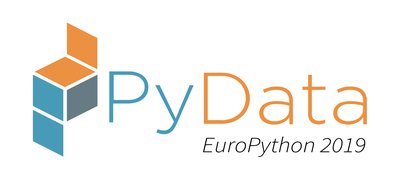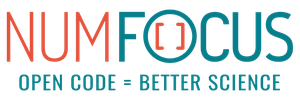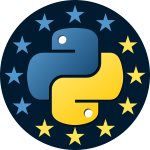PyData is an important conference series for the Python Data Science Community, with numerous events held in US and in Europe.

PyData Track @ EuroPython
We are happy to announce a PyData track as part of the main EuroPython conference this year, so you can enjoy PyData talks and training sessions without having to get an extra ticket.
The PyData track is run in cooperation with NumFocus. Find more information and the mission of NumFocus supporting Open Source Software below.
There are two full tracks featuring more than 30 talks and 4 trainings:
- 4 trainings on Monday and Tuesday (July 8-9)
- 34 talks on Wednesday and Thursday (July 10-11)
- no PyData talks on Friday (July 12)
Keynotes
Talks
- Audio Classification with Machine Learning by Jon Nordby
- Bioinformatics pipeline for revealing tumour heterogeneity by Mustafa Anil Tuncel
- Boosting research with machine learning. by Franziska Oschmann
- Building a Powerful Pet Detector in Notebooks by Katherine Kampf
- Building Data-Driven Client Relationship Management in Banking with Python by Paul Hughes
- Classification Based on Missing Features in Deep Convolutional Neural Networks by Nemanja Milosevic
- Dash: Interactive Data Visualization Web Apps with no Javascript by Dom Weldon
- Deep Learning with TensorFlow 2.0 by Brad Miro
- Dissecting tf.function to discover AutoGraph strengths and subtleties by Paolo Galeone
- Distributed Multi-GPU Computing with Dask, CuPy and RAPIDS by Peter Entschev
- Explaining AI to Managers 👨💼🤖👩💼 by Alexander CS Hendorf
- Extracting Tabular Data from PDFs with Camelot and Excalibur by Dimiter Naydenov
- Gamifying the study of algorithms by Iulia Avram
- Geospatial Analysis using Python and JupyterHub by Martin Christen
- Histogram-based Gradient Boosting in scikit-learn 0.21 by Olivier Grisel
- How software can feed the world 🌱 by Christian Barra
- How to train an image classifier using PyTorch by Rogier van der Geer
- Image processing with scikit-image and Dash by Emmanuelle Gouillart
- Machine learning on non curated data by Gael Varoquaux
- Modern Data Science with Vaex: A new approach to DataFrames and pipelines by Jovan Veljanoski
- Natural language processing with neural networks. by Hubert Bryłkowski
- PlotVR - walk through your data by Philipp Thomann
- Securely executing Python machine learning models with distroless images at ING by Thomas Kluiters
- Supercharge your Deep Learning algorithms with optimized software by Shailen Sobhee
- Tech-Powered OSINT: hunting for intelligence in open sources with Python by Chiin-Rui Tan
- TensorFlow 2.0: TensorFlow Strikes Back by Michele De Simoni
- Tensorflow Estimators by Mai Giménez
- The state of Machine Learning Operations in 2019 by Alejandro Saucedo
- Using Python to Teach Computational Finance by Tyler Brough
- Visual debugger for Jupyter Notebooks: Myth or Reality? by Elizaveta Shashkova
- What about recommendation engines? by Adriana Dorneles
- “When a biologist met Python” by Maria Molina-Contreras
Training sessions
- Analytics with 🐼 Pandas and Jupyterlab by Alexander CS Hendorf
- Get to grips with pandas and scikit-learn by Sandrine Pataut
- How to power up your product by machine learning with python micro-service by Dmitry Kisler
- Step Into the AI Era: Chatbots that know if you are angry by Cheuk Ho, Kara de la Marck

About NumFocus
The mission of NumFOCUS is to promote open practices in research, data, and scientific computing by serving as a fiscal sponsor for open source projects and organizing community-driven educational programs.
NumFOCUS envisions an inclusive scientific and research community that utilizes actively supported open source software to make impactful discoveries for a better world.
Many known projects are supprted by NumFoucs, just to mention a few: NumPy, Pandas, Matplotlib, Jupyter, SciPy, SymPy, Bokeh, xarray,… The full list.
NumFOCUS is a 501(c)3 public charity in the United States.
